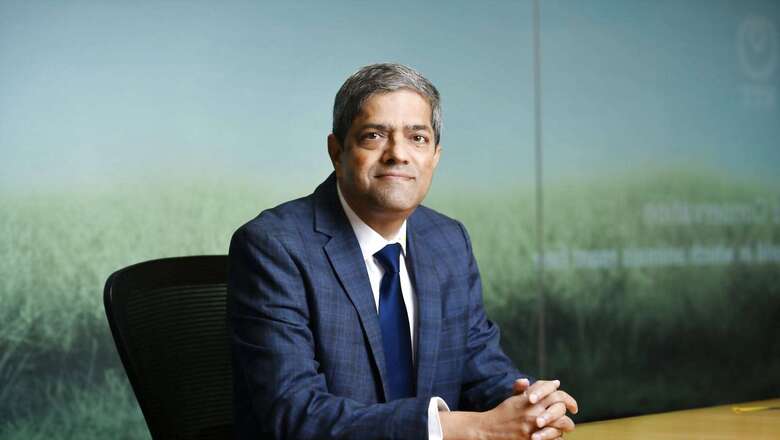
views
The salary gap between junior and senior employees in IT companies across India is ever increasing. On one end of the spectrum, junior employees are barely getting Rs 2000 hike in their monthly salaries after slogging over the year while senior managers are planning to get their next BMW. It’s surprising to see that salaries of freshers haven’t increased much in about a decade compared to the senior employees. But you can’t really blame businesses alone for that. The salary gap has mainly to do with the huge supply of engineers every year while the demand for such engineers hasn’t increased proportionally. Also, the majority of engineers lack crucial skill sets even after paying for a 4-years engineering degree.
Lack of skills, too much competition, limited opportunities and an education loan creates the ultimate desperation.
Getting a job after passing out from an average engineering college in itself is the first big step for most young graduates. But soon they realise that the salaries are just not enough to sustain in big cities after paying rent, transportation and basic personal expenses. For them, the direction is clear– upskill and keep changing jobs every two years or start working at multiple places as freelancers and deliver bare minimum to their full-time jobs. So, it’s a combination of ‘moonlighting’ and ‘quiet quitting’ simultaneously for many junior employees. For companies, both ‘moonlighting’ and ‘quiet quitting’ pose a major challenge for HR teams.
So, what should be done?
Avinash Joshi, Chief Executive Officer at NTT India– the global technology company that operates in over 20 countries and regions– in a freewheeling interaction with Debashis Sarkar, Editor, News18 Tech shares a different take as to what employees and employers should ideally do.
“This is my personal view and has got nothing to do with NTT India. We have to recognise trends like moonlighting. It is something bound to happen. People are probably going to look towards moonlighting sometimes due to interest and sometimes due to necessity. People are going to find ways to support themselves. I think the key is conflict of interest," said Joshi.
Stressing on conflict of interest, he further added, “As long as employees are transparent and there’s no conflict of interest, this will become a lot better in terms of how you support each other. Something which is not done transparently is probably not a good thing to do. Tackling conflict of interest is the key. More conversations are required to happen before policies are formed. If companies are able to figure out a way of dealing with conflict of interest then the conversation will be much easier."
Talking about the essential skills that IT employees must upgrade themselves with, Joshi said, “The good news for India, in my opinion, is that every business is becoming a technology business. As a result, having relevant IT skills will be advantageous. Some skill sets will remain evergreen for the times to come. These are information security, managing software defined services along with focus on domain skills for a particular industry will become important. Having both tech and core business knowledge is important to grow in future. For example, if you are a software developer in the financial or banking sector then acquire core business knowledge of the sector as well while brushing up tech skills."
The key goal for IT employees should be to stay relevant in the market. “They need to learn, unlearn and learn again to grow. What looks like an important skill now may not be needed after three years," he added.
Having said that, he said that no one in the IT industry needs to get overly worried about changing trends. Existing skills will be still in demand and there’s still no indication that certain roles or skills will become redundant soon. “However, any job that is repetitive in nature, I think, will get automated. The classic example is that of call centres. With text to speech and other technologies coming into the picture, a majority of the work is automated now," he stressed.
“As more and more software gets developed, all kinds of testing skills will become important going ahead. Testing software along with program management skills are things one should not underestimate. This is because there will always be demand for good program managers to drive efficiency in processes," added Joshi.
Talking about future plans at NTT India, Joshi said that the company is expanding its data center footprint. “We have 12 data centers already in place. And then we are building five more. So in total, we would have 17 data centers. So our data center capacity will get doubled in next 24 months time. So that’s one clear-cut roadmap," he said.
“From 1st of October, 2022, NTT and NTT data merged together as one. So, the infrastructure data center, connectivity arm of NTT group, and the application arm of NTT group, which is NTT Data. So the merger is going to create this one big NTT Data as a brand for our clients. So for the next 12 months, so you would see us, doubling down on both data center part of it and the IT service part of it, offering the same end-to-end comprehensive portfolio and to our clients."
NTT India will be hiring and reskilling people. The company globally invest roughly about 3.4 billion dollars in research and development.
“There are some unique solutions we will end up bringing to the market as a result. There would be, solutions addressing the sustainability segment and the need of the market. So us and our ecosystem partners will be bringing a big focus on the sustainability part of the business. We want to become carbon neutral in our operations by 2030 and move on to become carbon neutral in the entire value chain by 2040, so this is a very focused part," he added.
Read all the Latest Tech News here



















Comments
0 comment